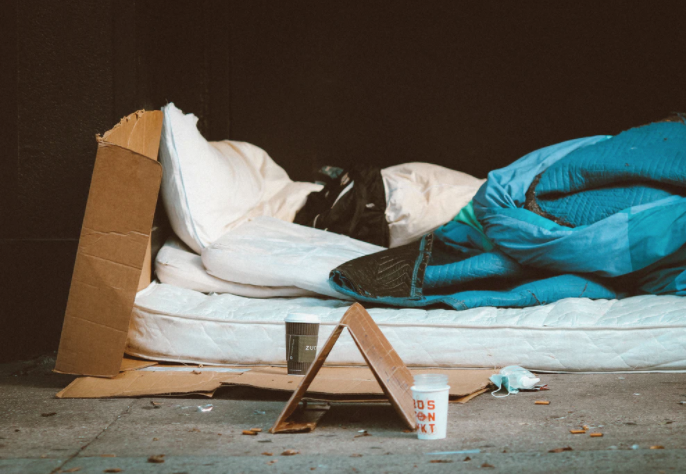Centrepoint, the UK’s leading charity for young homeless people, started life as a shelter in Soho, London, back in 1969.
The charity took its name from a building of the same name which was seen as an “affront to the homeless” for being left empty to make money for a property developer.
Half a century later, and Centrepoint is
taking unprecedented steps to transform the lives of London’s young homeless by
creating permanent affordable homes through its Independent Living Programme.
It forms part of a long-term strategy to end youth homelessness by 2037 (the
year by which the latest generation born in 2021 reach the age 16).
Over the decades, the charity has grown to not only help young homeless people put a roof over their heads, but to focus on areas of policy including housing, family, and health.
It is doing everything it can to ensure that no young person ever has to be homeless again with work that includes campaigning to ensure homeless young people are getting the right support when it comes to their benefits and personal finance.
It helps with further education, as well as developing people’s skills and creating employment opportunities.
It’s an approach that can involve providing psychotherapy, or getting people help with problems like substance abuse and mental health issues.
Young homeless people can access advice about nutrition, and how to build healthy relationships.
In fact, anything that will help them to reach their potential, whether it’s coaching them for job interviews, getting them into apprenticeships, or teaching them life skills and finally supporting them as they move on.
However, it is the critical lack of social housing which has meant that for many young homeless people, the prospect of moving on is a near impossibility.
As they usually start out in low-paid apprenticeships, or jobs, they struggle to find homes they can afford to rent.
The world has changed dramatically since Centrepoint started working with the young homeless.
We live in a digital age, and without a proper address it’s difficult to do all the things most people take for granted like open a bank account into which your wages can be paid, or have access to the internet.
There is hope on the horizon because this year the green light was given by Southwark Council to build 33 new single-occupancy modular homes in Peckham as part of the most ambitious scheme Centrepoint has ever undertaken.
The housing development is a key part of the charity’s Independent Living Programme, which will provide 300 young people a home and entry-level or apprenticeship roles that lead to full-time employment.
These individual modular homes are being built at a cost of around £50,000 each, replacing eight flats that previously occupied the site.
They will be designed for single occupancy, and be rented out for around a third of the tenant’s salary, making them accessible to people on low incomes who would never otherwise be able to rent in London – a city where a one-bedroom flat would cost upwards of £1,000 a month to rent in addition to requiring a hefty deposit.
The modular housing scheme is the first of what will become permanent long-term solutions being sought to address the homeless crisis.
No longer will young people face the uncertainty of living in temporary accommodation, or in a shelter, but instead they’ll get the chance to make the move from the vicious circle of rough sleeping and temporary accommodation to a more permanent and affordable way to live.
As flats and houses in big cities, especially London, become out of reach of the person on an apprenticeship or making a minimum wage, these modular homes are a lifeline.
What they will also do is free up hostel places and other types of temporary accommodation for others who may be living rough.
This initiative can’t come soon enough, as figures show a dramatic rise in the number of young people sleeping rough on London’s streets.
Data published by the Combined Homelessness and Information Network (Chain) found that between April and June 2020, there were 449 children and young people aged under 25 sleeping rough in the capital.
The figure for the second quarter of the year is an incredible 81 per cent higher than for the same period in 2019 (248), and 48 per cent higher than in the previous quarter (304).
A timely reminder that if charities like Centrepoint don’t get the support they need the youth homeless crisis is set to worsen.

